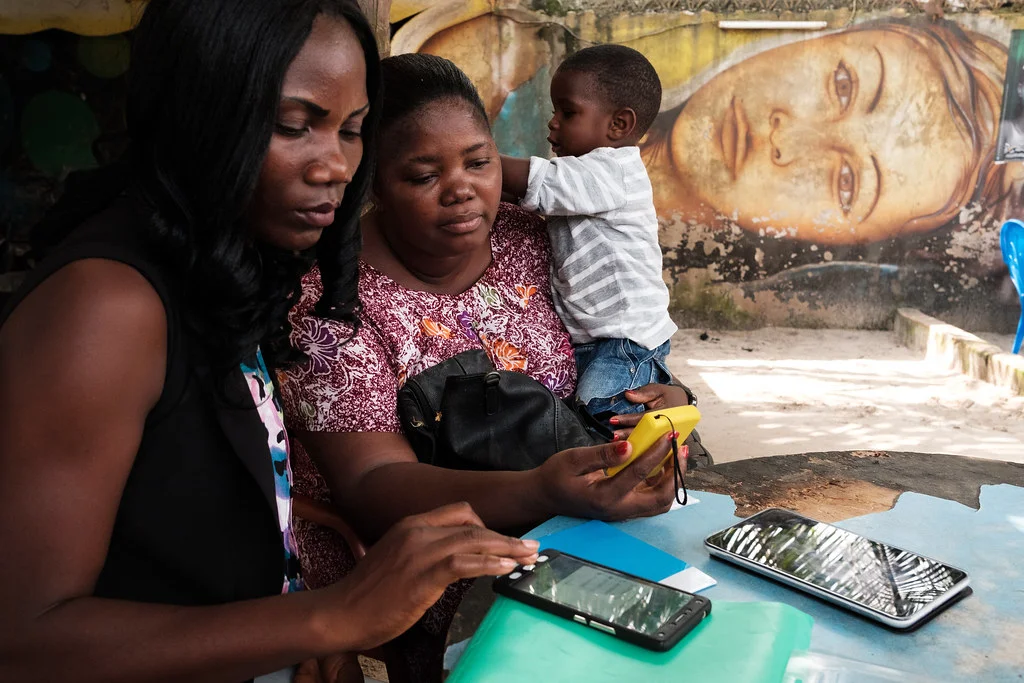Fintech Is Giving Africa’s Top Telco A Lifeline Amid Setbacks

MTN Group, Africa’s largest mobile operator, has unveiled a tale of two halves in its latest financial results. While the traditional telecommunications business grapples with the twin challenges of a plummeting Nigerian Naira and dwindling voice revenues, the fintech arm has emerged as a beacon of hope, propelling the company forward.
The Johannesburg-listed telecom giant reported a 20.8% year-on-year decline in group service revenue, largely attributed to the 52.9% drop in service revenue from its vital Nigerian operations, where the local currency has plummeted over the past year.
This saw MTN Group report a loss of USD 414.7 M in the six months through June; its first reported loss since it was slapped with a USD 1 B fine by the Nigerian government eight years ago.
While this paints a concerning picture of the headwinds facing the core business, MTN’s fintech division has, amid the gloom, demonstrated remarkable resilience and growth.
Fintech revenue soared by 27.2% year-on-year, a testament to the strategic shift the company is undertaking. “Fintech revenue increased by 27.2% year on year, in line with our medium-term guidance, with strong performances in Ghana, Uganda and Cameroon,” MTN stated. This growth trajectory is particularly impressive given the broader economic challenges.
The company has been strategically focusing on ‘advanced’ fintech services, which witnessed a staggering 58.2% year-on-year growth. This outpaces the 20.6% growth in ‘basic’ fintech services. MTN’s MoMo mobile money platform has been a key driver of this success. With 66 million active users as of June 30, MoMo has seen a 9.1% increase in user base, largely driven by expansion in Ghana, Uganda, and Rwanda.
A significant milestone was achieved in September 2023 when MoMo in South Africa introduced international remittances. The service has rapidly expanded, with payments now available to 12 African countries. This expansion has fueled a 42.4% year-on-year growth in the remittance business, reaching a substantial USD 1.9 B.
MTN’s fintech ecosystem has also seen impressive growth in other areas. Merchant payments through MoMo surged by 31.1% to USD 9 B, driven by an expanding merchant base of 2.3 million. The company’s bank-tech offering has also shown promise, with loans increasing by 73% to USD 731.6 M.
Overall, the fintech ecosystem processed 9.7 billion transactions worth a staggering USD 146.6 B. Notably, the fintech business boasts impressive EBITDA margins in the “mid-to-high 30% range.”
MTN Group CEO Ralph Mupita has been vocal about the company’s fintech ambitions. “In fintech, we are scaling the business through sequential launches of commercial initiatives with Mastercard across various markets in the remainder of the year, focusing on maintaining the strong momentum in advanced services growth,” he said.
The company’s pivot towards fintech is a strategic response to the challenges facing the traditional telecommunications industry. As voice revenues decline and market competition intensifies, MTN is positioning itself as a leading player in the burgeoning African fintech space. The company’s success in this domain is proving to be, not only a lifeline, but also a blueprint for other telecom operators seeking to diversify their revenue streams.
While the road ahead is likely fraught with challenges, MTN’s fintech performance offers a glimmer of hope. As the company continues to invest in and expand its fintech offerings, the potential for sustained growth and profitability becomes increasingly apparent.
Featured Image Credits: Nyani Quarmyne/IFC